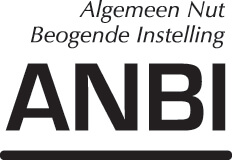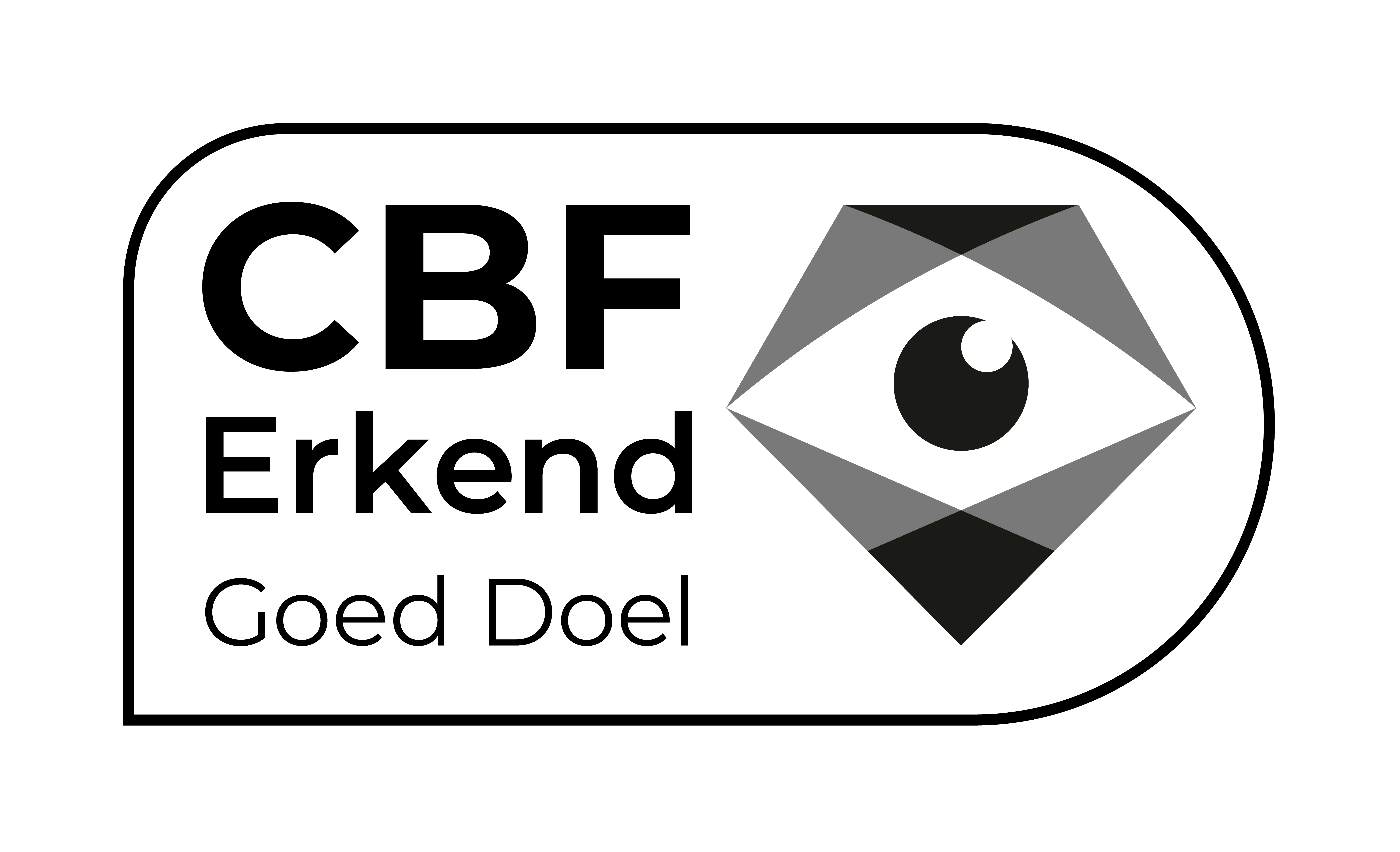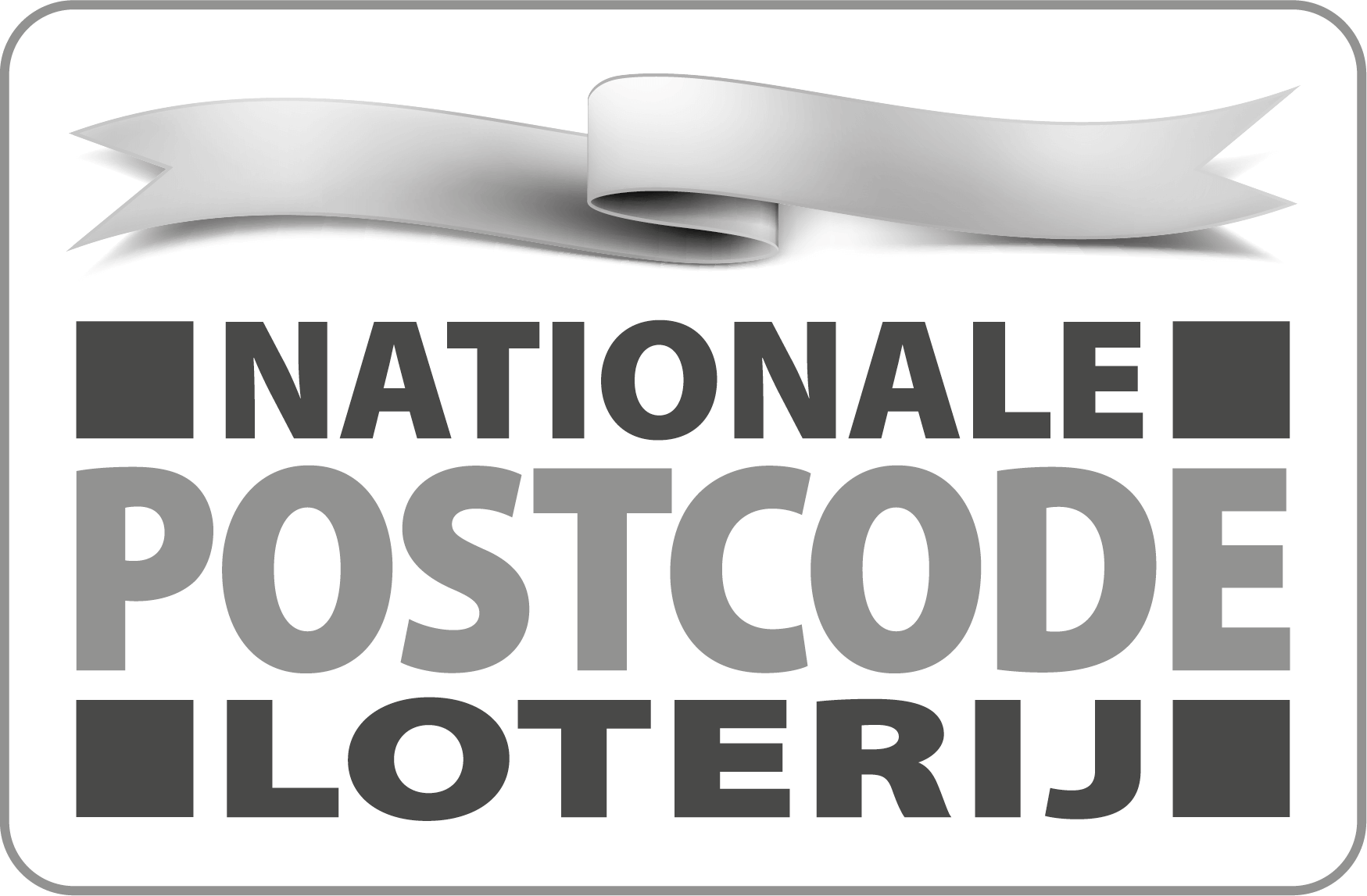News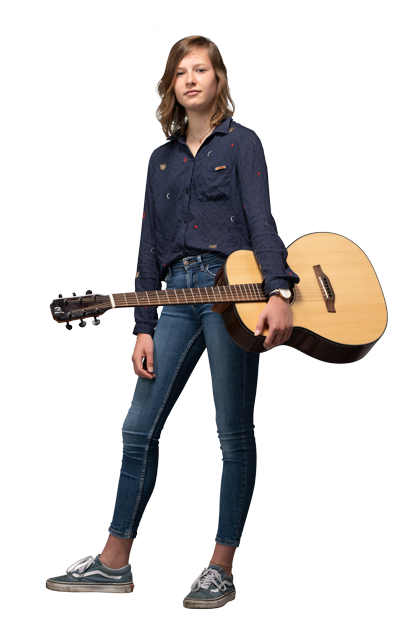
Children throughout Gelderland are actively involved in sports and culture, supported by the Youth Fund for Sports and Culture. DanzArte Dance School in Aalten/Dinxperlo is also a strong supporter of the Youth Fund.
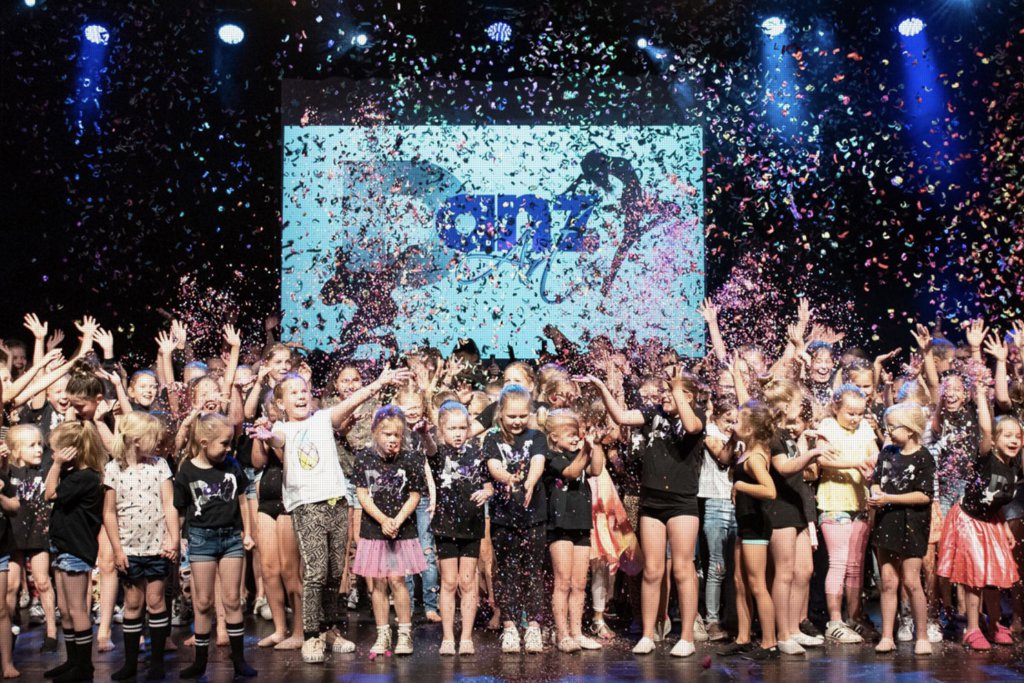 DanzArte was founded in 2012 by Magali and Eddy Tiemersma. Magali started dancing at a young age and quickly knew she wanted to turn her passion into a career. She studied dance at the Rossetti Art Conservatory in Buenos Aires, Argentina. She also realized her dream of opening her own dance school in the Netherlands. "For us personally, dance is indispensable in life and one of the most beautiful things there is. Dance is a passion, a sport, a great love, an art form, an outlet, a guiding principle, something that brings people together and connects them."
DanzArte was founded in 2012 by Magali and Eddy Tiemersma. Magali started dancing at a young age and quickly knew she wanted to turn her passion into a career. She studied dance at the Rossetti Art Conservatory in Buenos Aires, Argentina. She also realized her dream of opening her own dance school in the Netherlands. "For us personally, dance is indispensable in life and one of the most beautiful things there is. Dance is a passion, a sport, a great love, an art form, an outlet, a guiding principle, something that brings people together and connects them."
Why do you think the Youth Fund for Sports & Culture is important?
We want to share our passion for dance with all children, teenagers, and adults, so everyone can enjoy every dance! We also believe it's important that all children have the opportunity to participate in sports. Dancing is healthy, and more fun when you can do it together. If there's not enough money at home to participate in sports, the Youth Fund helps by paying the membership fee.
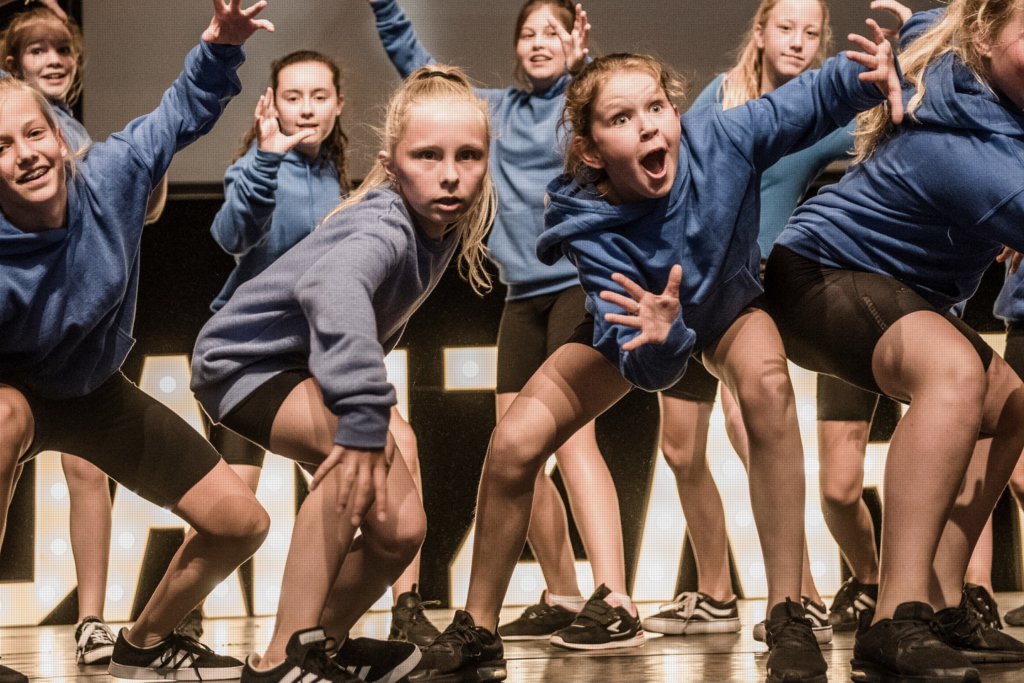 What does dancing do for children?
What does dancing do for children?
Children who enter our dance school shyly and build confidence over time. A girl who struggles to connect and now experiences true friendship with her dance friends. Students looking for a moment of relaxation. A break from textbooks and computer screens.
Do you have any tips for other associations?
We're promoting the Youth Fund through social media, email, newsletters, and advertising at the dance school. We've noticed that many low-income parents don't quite know what to do. So help your members get started!
Danzarte dance school has two locations: one in Aalten and one in Dinxperlo. For more information: www.danzarte.nl.
‘Zelf stond ik als meisje van vijf al op de judomat. Lekker stoeien, bewegen, vrienden maken. Dat gun ik andere kinderen ook.’ Sandra Bax traint nu andere kinderen op haar judoclub in Vianen. ‘Het is veel meer dan alleen sporten. Lid zijn van een club geeft zoveel voldoening. Juist voor kinderen die het moeilijk hebben kan het een leven veranderende keuze zijn.’
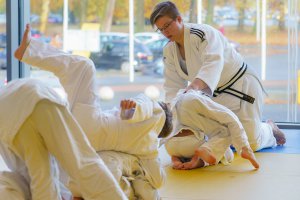 Sandra Bax is trainer en actieve vrijwilliger bij Judo Vianen. Menig uurtje in de week is ze op de club te vinden. ‘Het is meer dan een hobby’ lacht ze. De vereniging maakt een bloeiperiode door. ‘Veel nieuwe groepen, goede sfeer, fijne mensen. Dat clubgevoel is echt uniek. Vroeger judode ik bij een sportschool; dat is toch echt iets anders. Hier doen we ook andere activiteiten met de kinderen. Naar een speeltuin samen, een gezamenlijk dagje uit. Op pad op een laagdrempelige manier. We houden de kosten echt zo laag mogelijk zodat ieder kind mee kan. Wij vinden het als vereniging belangrijk dat alle kinderen mee kunnen doen. Ook al is er thuis niet heel veel geld.’
Sandra Bax is trainer en actieve vrijwilliger bij Judo Vianen. Menig uurtje in de week is ze op de club te vinden. ‘Het is meer dan een hobby’ lacht ze. De vereniging maakt een bloeiperiode door. ‘Veel nieuwe groepen, goede sfeer, fijne mensen. Dat clubgevoel is echt uniek. Vroeger judode ik bij een sportschool; dat is toch echt iets anders. Hier doen we ook andere activiteiten met de kinderen. Naar een speeltuin samen, een gezamenlijk dagje uit. Op pad op een laagdrempelige manier. We houden de kosten echt zo laag mogelijk zodat ieder kind mee kan. Wij vinden het als vereniging belangrijk dat alle kinderen mee kunnen doen. Ook al is er thuis niet heel veel geld.’
Lol maken en vriendschappen sluiten
Voor Sandra is het een uitgemaakte zaak. ‘Sporten is goed voor kinderen. Bewegen, conditie opbouwen, sneller, behendiger en sterker worden.’ Maar er is meer. ‘Juist ook het weerbaar worden, zelfvertrouwen opbouwen en gezien worden zijn belangrijke aspecten van judo op onze club. We creëren ruimte om jezelf te zijn. Iedereen is welkom. Juist dat inclusieve wordt door veel leden gewaardeerd. Zonder oordeel er mogen zijn. Jezelf laten zien, dat kan hier. Er ontstaan hier veel vriendschappen. Juist ook door alle activiteiten eromheen leren de kinderen elkaar beter kennen en waarderen. Het is ook gewoon superleuk en gezellig. Ook ouders betrekken we bij het clubgevoel. Zij komen mee met de kinderen, helpen een handje en sluiten zo zelf ook soms weer nieuwe vriendschappen.’
Enorm verlegen kind
‘Judo is een individuele sport, maar je hebt wel anderen nodig. Judo = duo, je verbetert jezelf, maar dat kan niet zonder anderen. Ik was zelf een enorm verlegen kind. Door het judoën is dat minder geworden. Mijn social skills zijn er echt op vooruit gegaan door deze sport. Dat zie ik ook bij de kinderen die ik lesgeef. Een jongetje van vier. Sprak nauwelijks. Keek niemand aan. Na zes weken judo maakte hij contact met anderen. Langzaam begon hij zich te laten zien, te communiceren. Prachtig! Een veilige plek creëren waar kinderen dit kunnen leren, daar maken we ons hard voor. Het is mooi om te zien dat een kind steeds meer zelfvertrouwen krijgt. Dat hij of zij een plek inneemt in de groep en voor zichzelf kan opkomen. Dat is iedere keer weer een cadeautje.’
Niet gericht op presteren
‘Groeien. Zowel fysiek, mentaal als vooral sociaal-emotioneel. Daar proberen wij als club ons steentje aan bij te dragen. Wij zijn niet primair gericht op presteren. Het is echt meer dan alleen op de mat staan. Dat familiegevoel van een club en de aandacht die wij voor elkaar hebben is bijzonder. Ook bij oudere puberkinderen kan een club een veilige haven zijn. We hebben veel verschillende leden. Niet iedereen past in een hokje. Het zoeken naar je eigen identiteit kan best verwarrend zijn. Er zijn bijvoorbeeld een aantal leden uit de kast gekomen. Dat is een compliment vind ik. Daar ben ik heel trots op. De omgeving is dus veilig genoeg om je te laten zien. Dat sportklimaat streven we ook na. Daar doen wij, als trainers en als vereniging, ook ons uiterste best voor. Dat iedereen gezien wordt. Daar zullen we keihard voor vechten.’
Dagelijkse zorgen vergeten
Via de judo bond kwam Sandra in contact met het Jeugdfonds Sport & Cultuur. ‘Fantastisch natuurlijk dat deze mogelijkheid er is. Ik gun ieder kind een fijne, veilige club. Om te sporten, lol te maken, te groeien. Om vrienden te maken en lekker te bewegen. Maar ook om je dagelijkse zorgen even te vergeten. Wij hebben bij Judo Vianen ook kinderen gehad die met hulp van het Jeugdfonds bij ons kwamen sporten. Ik zie iedere dag wat het met kinderen kan doen om lid te zijn. Het kan een leven veranderen. Het kan vertrouwen geven in jezelf en de toekomst.’
Meer over judo via het Jeugdfonds
‘Eigenlijk ben ik vader, moeder, opa, oma, coach, docent en pedagoog tegelijkertijd.’ Leslie Okyere is voetbaltrainer en hoofd opleiding bij FC Amsterdam. ‘Bij deze club ben je er niet met een uurtje training. De meeste kinderen hebben meer nodig. En dat is de leuke uitdaging waar we hier voor staan. We willen ze een kans geven.’
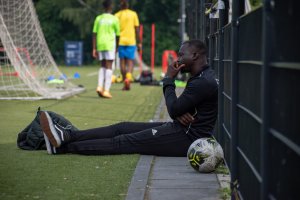 Voor de kinderen van FC Amsterdam is Leslie Okyere een bekend gezicht. Al vijftien jaar is hij betrokken bij deze club. Als trainer, als hoofd opleidingen en als ‘man van de voetbalschool’. Vrijwilliger met een hart voor kinderen en voor voetbal. ‘Je doet wat je kunt. Ieder kind is uniek. Vraagt een andere benadering. En heeft recht op aandacht, gezien worden.’
Voor de kinderen van FC Amsterdam is Leslie Okyere een bekend gezicht. Al vijftien jaar is hij betrokken bij deze club. Als trainer, als hoofd opleidingen en als ‘man van de voetbalschool’. Vrijwilliger met een hart voor kinderen en voor voetbal. ‘Je doet wat je kunt. Ieder kind is uniek. Vraagt een andere benadering. En heeft recht op aandacht, gezien worden.’
De voetbalschool, waar Leslie intensief bij betrokken is, biedt voor ongeveer 50 kinderen tussen de 4 en 16 jaar voetbaltraining. ‘Hierbij gaat het niet primair om de prestatie. Iedereen wil graag winnen, dat is heel natuurlijk. Maar wat we met deze school graag willen bereiken is dat kinderen, uit veelal kansarme gezinnen, mogelijkheden krijgen. Het gaat dan om de sociale ontwikkeling, de geestelijke en lichamelijke groei maar ook het bevorderen van de integratie, het opbouwen van een nieuw netwerk en vooral het creëren van een uitlaatklep. Deze kinderen groeien vaak op in een omgeving waar weinig ruimte is voor leuke dingen, voor ontspanning. Financiële problemen leveren stress op. Dat heeft natuurlijk zijn weerslag op het hele gezin. Die kinderen hebben een uitlaatklep nodig. Een plek waar ze hun energie op een leuke veilige manier kwijt kunnen.’
Ander perspectief geven
Leslie benadrukt dat de kinderen vaak de dupe zijn van armoede. ‘Zij hebben er niet voor gekozen, maar moeten er wel mee leren omgaan. De thuissituatie kan een isolement veroorzaken. Hoe fijn is het dan om toch naar voetbal te kunnen gaan. Met je maatjes na afloop een patatje eten, even rennen en helemaal los raken van alle problemen. Contact met anderen kan weer inspireren, een ander perspectief geven. Ook het opdoen van een ander netwerk kan kinderen vooruit helpen. En vergeet de ouders niet. Die leren ook weer andere mensen kennen, kunnen andere vrienden maken. Dat kan ook een nieuwe stap zijn naar een ander leven. Het kan deuren openen. Laten kennismaken met een andere lifestyle, gezonder eten, noem maar op. Ik zeg niet dat dat allemaal gaat gebeuren, maar het kan wel!’
Kinderen herkennen thuissituatie
‘Ik ben dus veel meer dan trainer. Ik voel me ook soms opvoeder. Wij zijn hier ook bezig met algemene aspecten als normen en waarden, verantwoordelijkheid nemen voor je acties, regels, handhaving en gedrag. Dat zijn belangrijke vaardigheden waar onze club ook een rol in heeft. Daarnaast maken we ook gewoon veel lol. Lekker samen achter een bal aan rennen, heerlijk!´ Meer dan twee derde van de leerlingen van de voetbalschool doet een beroep op een of andere vorm van financiële ondersteuning. ‘Dus veel kinderen herkennen in elkaar een bekende thuissituatie. Dat kan ook een band scheppen. Ieder jaar rond 1 oktober is het weer spannend. Op die datum moet namelijk de contributie binnen zijn. We weten dat dat voor veel ouders een aderlating is. Je ziet dan ook ineens kinderen niet meer op de training komen of ouders niet meer langs de lijn. Of kinderen blijven komen terwijl er niet betaald is. Dat is altijd een moeilijk en pijnlijk moment. We willen heel graag meedenken, maar sommige ouders praten er niet over. Verdwijnen dan gewoon van de radar. Terwijl er vanuit verschillende kanten best ondersteuning te krijgen is.’
Deel van groter geheel
‘Het maakt mij gelukkig dat we deze groep kinderen een uitlaatklep kunnen bieden. Een kans. Een mogelijkheid, al is het maar even, te ontsnappen aan de dagelijkse problemen. Als ik zie wat voetbal daaraan kan bijdragen… En met name een club. Het deel zijn van een groter geheel is essentieel. We laten kinderen bij de voetbalschool langzaam kennismaken met het verenigingsleven. En in het kielzog proberen we de ouders ook te betrekken bij de club. Maar dit laatste is een uitdaging. Het blijft lastig om ouders te motiveren. Rijden naar wedstrijden, vlaggen, fluiten. Soms halen we kinderen thuis op omdat ze anders niet meekunnen. Soms helpen we bij huiswerk, het invullen van formulieren, het schrijven van een cv. We zijn praatpaal bij problemen, we ondersteunen waar we kunnen, we werken flexibel mee, we denken in oplossingen.
Dat maakt dit werk, dat ik trouwens vrijwillig doe, zo waardevol. Ik zie het als mijn maatschappelijke bijdrage aan de samenleving. Ik verdien mijn geld niet hier op de voetbalclub, maar hier ligt wel een deel van mijn hart. Als ik jongens later weer tegenkom en ik zie dat ze gegroeid zijn in alle opzichten, dan voel ik me trots. Als de kinderen op zaterdag weer met een smile de poort uitlopen ben ik blij. Dat is dan weer een happy day!’
>> Werk jij bij of voor een club? Kijk hier hoe jij kunt helpen onze boodschap te verspreiden
Hans Welle is the conductor and founder of the Almere Youth Symphony Orchestra. In February 2023, he retired after 35 years with a concert at the Amsterdam Concertgebouw. Hans passed the baton to his son Daan and was appointed Knight of Orange-Nassau. We spoke with Hans in April 2022. In 1987, piano teacher Hans started a small orchestra with three children in the young city of Almere. The Muppets, as they cheerfully called themselves, played piano, violin, and flute. The young musicians invited their friends to join in. The rest is history. Today, the Almere Youth Symphony Orchestra (AJSO), which he founded, is one of the top youth orchestras in the Netherlands, with a full complement of over 80 musicians. Besides the flagship AJSO, there are five orchestras and ensembles where a total of around 180 children and young people make music, collaborate, and, above all, have a lot of fun.
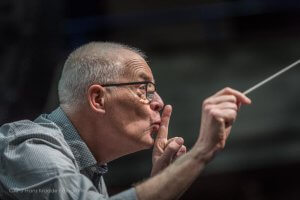 Making music together creates a bond
Making music together creates a bond
"The orchestra is their club," says Hans Welle. "That's where they make and meet their friends. In fact, there have already been several orchestra weddings and orchestra babies. Making music together creates a bond. Last week I received an email from a former orchestra member who had quit the orchestra because she was going to study in another city. Now she was living in Almere again – asking if she could play again. That says it all. I had every opportunity as a child. Music lessons were a given at home. At 13th I joined the brass band; I immediately loved playing in an orchestra. I was always busy with music, and it made perfect sense to go to the conservatory, where I chose piano with conducting as my second major. Then it dawned on me: my heart was in conducting.
Mind and feeling
New orchestra members join the orchestra through the Center for Artistic Formation and private music schools. They always start in a training orchestra, the first step on the path to becoming the AJSO symphony orchestra. Why is music so important for children? “Enormously important. It's good for your brain. You have to learn to read music and translate that to the instrument, you have to concentrate, learn to listen to others, and collaborate. But it's also good for your emotional life through the expression of your emotions in music. And also the more practical aspects. When you play in an orchestra, you have to be on time. You help set up chairs and put them away again, you go on trips together. The members of the main symphony orchestra act as rehearsal coaches for the training orchestras. This way, the little ones learn from the older children and young people. That social aspect is an important part of playing in an orchestra. We offer a very broad approach to this entire training program, not only musically but also organizationally and socially.”
Every child should have the opportunity
Music lessons are expensive and therefore a distant prospect for many families. Children from low-income families should also have the opportunity to take music lessons and join the AJSO, Hans believes. “I believe all children should be able to participate. One of our board members is actively working on this. For example, we currently have two Syrian children from a refugee family in one of the training orchestras. The lessons are paid for by the Youth Fund. If we notice a problem with taking lessons, renting an instrument, or joining our trips, we address it. In principle, everyone should be able to participate. We reach all children through our school performances. Music is too much fun and too important to ignore; every child should have the opportunity to make music.”
Jordy Richir werkt voor De Rijdende Popschool, een organisatie die het maken van muziek voor zoveel mogelijk kinderen, jongeren en volwassenen toegankelijk wil maken. Dit doen ze onder andere door les te geven in de dorpen in zogenaamde popscholen. Naast zijn coördinerende taken is hij ook bandcoach van verschillende popbandjes van De Rijdende Popschool.
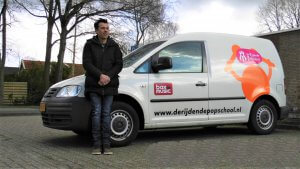
Muziekles komt naar je toe
Bij De Rijdende Popschool (DRP) krijgen kinderen en jongeren muziekles in een bandje onder leiding van een professionele bandcoach. Om mee te doen hoeven ze geen instrument te kunnen bespelen en ook niets te huren of kopen. DRP komt naar de dorpen toe met alle spullen die nodig zijn, zoals instrumenten als gitaren, drums en keyboards, versterkers, microfoons en een zanginstallatie. Daarmee maken ze muziekles voor zoveel mogelijk mensen toegankelijk. Zeker in de dorpen en op het platteland waar het cultuuraanbod over het algemeen zeer beperkt is of op flinke afstand van de woonplaats ligt. In de bandjes wordt vooral popmuziek gemaakt, waarbij de kinderen in overleg met de bandcoach de liedjes uitkiezen.
Kunnen doen waar je blij van wordt
Het mooie van zo’n popbandje is dat je snel leert en het gewoon leuk is om samen muziek te maken. Jordy: ‘Door mijn ouders ben ik op 8-jarige leeftijd met blokfluitles begonnen en kon doorstromen naar gitaarles. Uiteindelijk heb ik er zelfs mijn beroep van kunnen maken.’ Doen wat je leuk vindt en waar je gelukkig van wordt is ontzettend belangrijk voor kinderen. ‘Ik heb het geluk gehad dat mijn ouders de financiële mogelijkheid hadden om mij op muziekles te kunnen doen, helaas is dat niet voor iedereen weggelegd.’
Youth Fund Sports & Culture
Momenteel zijn in 10 dorpen popbandjes onder leiding van DRP actief. ‘Zo gauw alle maatregelen rondom Corona het weer toelaten willen we starten met een nieuw bandje in Vlagtwedde,’ vertelt Jordy. In elk dorp kan op elk moment een nieuwe Popschool gestart worden. ‘We werken in blokken van 11 weken, 3x per jaar, zodat het heel laagdrempelig blijft en kinderen niet voor langere tijd ergens aan vast zitten,’ geeft Jordy aan. ‘De groep krijgt per keer 1 uur en 15 minuten les. Voor deze lestijd zijn de lesgelden laag, maar als je weinig te besteden hebt is elk bedrag al te veel. Daarom zijn we ook zo blij met de samenwerking met het Jeugdfonds Sport & Cultuur. We noemen het Jeugdfonds op onze website, nemen het mee in de voorlichting op scholen en vertellen erover aan de ouders bij de kennismakingsworkshops. We hameren erop dat mensen zich er niet voor hoeven te schamen maar het vooral moeten zien als een kans voor hun kind die ze kunnen bieden. De kans om te proeven aan cultuur en de ontwikkeling van het kind. Zowel het Jeugdfonds als de school of maatschappelijk werkers die als intermediair de aanvraag kunnen doen zijn heel discreet is onze ervaring,’ vertelt Jordy.
Laagdrempelig en toegankelijk
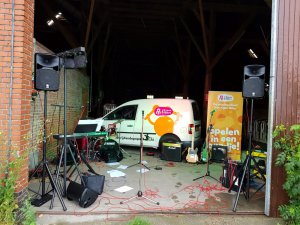
De lessen van DRP en het spelen in een popbandje zijn goed voor het zelfvertrouwen van kinderen, ze leren elkaar respecteren en samenwerken, maar bovenal plezier hebben. ‘Zoals ik zelf ook heb ervaren is het zo belangrijk dat je kunt doen, of ontdekken, waar je blij van wordt.’ Bij DRP kan dat dichtbij huis en op een laagdrempelige en toegankelijke manier. ‘Het is helemaal mooi wanneer een kind heeft kunnen ontdekken welk instrument of bijvoorbeeld zingen bij hem of haar past en daarna doorstroomt naar het reguliere muziekonderwijs. Dan is onze missie helemaal geslaagd’ vindt Jordy.
>> website De Rijdende Popschool
Korfball is so much fun because it is a team sport that involves cooperation between boys and girls, Gert-Jan KraaijeveldGert-Jan is Manager of Korfball Participation at the Royal Dutch Korfball Association (KNKV)To allow as many people as possible to enjoy korfball and to promote korfball to the Olympic level. These are the federation's two main ambitions. Korfball, a traditional Dutch sport, has developed internationally and as a top-level sport. 'Every child should be able to participate with us'.
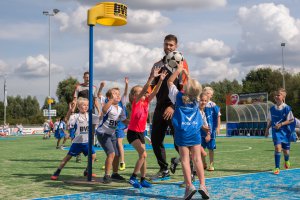 “In our teams, men and women play together,” says Gert-Jan. “That makes it special. There is korfballfield an attacks- and a defense zone and there are no specific division of rolesand between the players like in football for example. You start from the specificth qualities of the players. In winter we play indoors in the sports hall, in the frontryear, 'in summer and the autumn outside. Then we play on our own accommodations and becomen there besides the competition many other things activities by the associations organized.
“In our teams, men and women play together,” says Gert-Jan. “That makes it special. There is korfballfield an attacks- and a defense zone and there are no specific division of rolesand between the players like in football for example. You start from the specificth qualities of the players. In winter we play indoors in the sports hall, in the frontryear, 'in summer and the autumn outside. Then we play on our own accommodations and becomen there besides the competition many other things activities by the associations organized.
Warm bath
Korfball is known for its club culture. It is a sport where oftenthe families being involved. “That's what makes it so great,” says Gert-Jan. “Of course it's about the sport itself, but you see that because the teams are mixed the environment is social and safe. Anyone who starts with korfball, has the feeling of being in a warm bath at come. That warm, social climate is typical for korfball, that is What we're good at. That's also what makes us so popular in education. Korfball at school is one of the popularste sportand at schools, because boys and girls can play sports together. It is not an expensive sport. That is of course because you play korfball at An association and hMost of the work is done by volunteers."
Sports are very important for children
 The association supports the 472 clubs throughout the countryChildren can participate in the 'Kangaric Clubs"Korfball is for young and old. But the ages 5-12 are very important to us. They are the future of the sport. There's definitely attention in sports for families with limited means. We also want to give those children the opportunity to play korfball. Honestly, we need to make that more known. For example, by inviting friends of... players during open days to let you know that the Youth Fund there is if they are because of money cannot become a member of the association.”
The association supports the 472 clubs throughout the countryChildren can participate in the 'Kangaric Clubs"Korfball is for young and old. But the ages 5-12 are very important to us. They are the future of the sport. There's definitely attention in sports for families with limited means. We also want to give those children the opportunity to play korfball. Honestly, we need to make that more known. For example, by inviting friends of... players during open days to let you know that the Youth Fund there is if they are because of money cannot become a member of the association.”
“I really think that all children should be able to play sports. Sports are so valuable for children. They learn a lot from it. from a social and motor perspective, sports are fun, but also It is important from a health perspective. Children nowadays spend a lot of time behind digital Screens. Obesity is a growing problem. That alone is why you want children to participate in sports. to to explain why korfball is so much fun.”
Read also
Photo credit: Edwin Sonneveld, Korfbalfoto.nl
Agnes van der Weide is an active member of the Groen Geel Wormer korfball club. You could call her a true Groen Geel member, as she has been dedicated to the club for 45 years. And she's not alone. The entire Van der Weide family is a typical korfball family. At Groen Geel, they don't just look after each other. Agnes also ensures that children from low-income families can become members. Thanks to the excellent collaboration between the Youth Fund for Sports & Culture and Groen Geel, no fewer than 13 children who would otherwise not have been able to participate were able to play korfball last season.
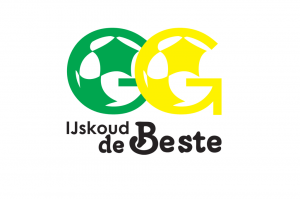
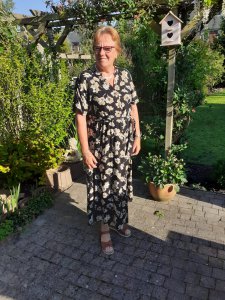
"I discovered korfball 45 years ago through my husband," says Agnes. "He was already active as a player and behind the scenes at Groen Geel. When I married him, I also married the club. As a Catholic girl, it was in my heart."
I wasn't used to playing korfball, but it quickly became clear that I could play a role in the organization and administration. I've done everything from competition secretary to contact person to setting up a clothing committee. We now have four children and eight grandchildren. Our children are also real Green Gelers All four of them played for Groen Geel and were also active behind the scenes. This is still the case. Many activities for young people are organized around school korfball. This is one of the reasons why many children are drawn to korfball. Not only for the sport itself, but also for the atmosphere and camaraderie. Lots of couples meet at the parties.
Intermediary for the Youth Fund
"I've been retired since January," says Agnes. "I worked in the administration of a primary school and was also an intermediary for the Youth Fund. Because of that, I'm intimately familiar with poverty issues. I spoke with parents who had little money, helped them fill out forms for the municipality, and also submitted applications to the Youth Fund for them. I was also involved in establishing the Youth Fund in Wormer and worked closely with the municipality to simplify the application form for parents. At Groen Geel, the Youth Fund paid the membership fee, and the remaining amount was used to buy sportswear at a local sports shop. Ideally, the municipality's Social Affairs Department would inform people about the Youth Fund when they were applying for benefits."
More resilient
I see children grow after being members for a while. They learn to work together, win, lose, and take the brunt of things. They become more resilient. This also benefits them in society. It's also very important in the context of good citizenship. It's very important for society that children play sports. In Wormer, our Pentecost camps are a well-known tradition, as are all sorts of theme parties at the club. Wormer is a multicultural community where sports aren't a given for everyone. At Groen Geel, children from non-Dutch backgrounds play korfball. At Groen Geel, we care for each other, and the parents know that. They make new friends and play outside together all day long. Very valuable.
Read also
Hans van Dongen is the director of the MEC Muziek music school. He started out as a music teacher, and his goal is to share his passion for music with young and old. The music school began in Zwolle and has grown into a group of eight music schools in Overijssel and Gelderland. MEC Muziek is also a music partner for more than 30 schools in the region, providing music lessons during school hours.
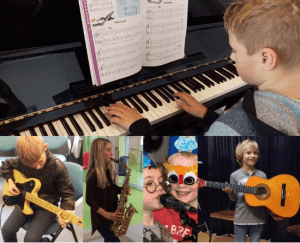
How do you pay attention to the Youth Fund?
When people express interest in music lessons, specifically extracurricular music lessons that they have to pay for themselves, we now routinely inform them that there are options available if you can't afford them yourself, or only partially. For example, you can contact the municipality or funds like the Youth Fund for Sport & Culture. We also regularly receive questions about this when we're distributing flyers for the music school, and it always comes up then.
Why do you think it is important to pay attention to the Youth Fund?
We get a lot of questions every week about music lessons and how much they cost. Sometimes, you don't hear anything back. Then, when you happen to talk to someone or a family member again, you discover they really wanted to take them, but didn't have the money. That's why, with every inquiry about the services offered, we always include information about the available financial options.
What does culture do to children?
Culture is, of course, important for your development. When you engage with art, culture, or music, all the negative feelings you have disappear. Besides, everyone has a talent. If you don't do anything with it, something inside you starts bubbling up. You have to do something to let your talent shine. Discovering your talent is important, also for your self-esteem.
During performances, you always see everyone very nervous about going on stage. I always tell the photographer: don't take a picture during the performance, but rather when it's just finished and they're looking up at the audience and their parents. Then you see such a liberating smile on their faces, and they're proud of themselves for what they've just accomplished.
Can you give a good example?
Children sometimes come to me and tell me they didn't dare to do much when they were younger. They didn't even dare to raise their hands in class, even though they knew the answer. And now they do, because they've started making music. They dare to stand up for themselves, and they realize they can do something and make a difference.
Do you have any tips for other cultural providers?
It's important to always share the available options when people have questions about your cultural offerings or cultural institution. Don't assume people will be comfortable asking if they need it, because that's not always the case. Someone who doesn't need it won't mind receiving this information either. You might be able to help someone else with it. Someone who doesn't dare ask but does need it will always receive this information this way. It's important that as many people as possible are aware of the available options. You could also mention this during performances. There's always an introductory speech in which you thank everyone for coming. This way, you can also emphasize how important it is for everyone to be able to participate.
MEC music gives music lessons in Wezep.
For more information: www.mecmuziek.nl
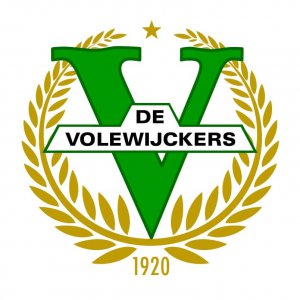 A.S.C. De Volewijckers is dé voetbalclub van Amsterdam-Noord. Opgericht in 1920 schopten ze het in 1944 zelfs tot landskampioen. Tegenwoordig is het een actieve vereniging, belangrijk in de wijk maar ook steeds meer in de regio. Jeugdvoorzitter Sophie Wong: ‘Wij zijn er voor álle kinderen’.
A.S.C. De Volewijckers is dé voetbalclub van Amsterdam-Noord. Opgericht in 1920 schopten ze het in 1944 zelfs tot landskampioen. Tegenwoordig is het een actieve vereniging, belangrijk in de wijk maar ook steeds meer in de regio. Jeugdvoorzitter Sophie Wong: ‘Wij zijn er voor álle kinderen’.
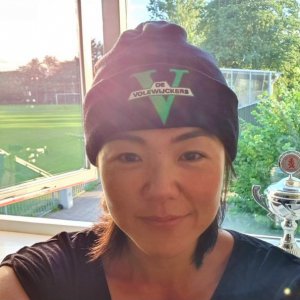 Sophie Wong begon als voetbalmoeder die, zoals zoveel ouders, haar zoontje aanmoedigde vanaf de zijlijn. Inmiddels is ze jeugdvoorzitter. “Ik zag dat er veel handen nodig waren om de club goed te laten reilen en zeilen. Van limonade inschenken, de appgroep coördineren, tot teamleider: ik vond het leuk om betrokken te zijn. Uiteindelijk ben ik door het bestuur als jeugdvoorzitter gevraagd. Dat doe ik niet alleen. Ik heb een hele goede groep mede-vrijwilligers om me heen. Je moet mensen durven vragen. Zoals je voetballers scout, moet je ook vrijwilligers scouten.”
Sophie Wong begon als voetbalmoeder die, zoals zoveel ouders, haar zoontje aanmoedigde vanaf de zijlijn. Inmiddels is ze jeugdvoorzitter. “Ik zag dat er veel handen nodig waren om de club goed te laten reilen en zeilen. Van limonade inschenken, de appgroep coördineren, tot teamleider: ik vond het leuk om betrokken te zijn. Uiteindelijk ben ik door het bestuur als jeugdvoorzitter gevraagd. Dat doe ik niet alleen. Ik heb een hele goede groep mede-vrijwilligers om me heen. Je moet mensen durven vragen. Zoals je voetballers scout, moet je ook vrijwilligers scouten.”
Het is weer zaterdag!
Wat betekent de voetbalclub voor de kinderen? Sophie lacht: “Voetbal is natuurlijk een prachtige sport. Lekker buiten, een teamsport, samen met je teamgenoten trainen. Kinderen leven toe naar de zaterdag. En ondertussen leren ze van alles. Ze moeten op tijd op het veld staan, zich inzetten, leren winnen en verliezen. Kinderen leren verantwoordelijkheid nemen. Ze leren samenwerken, de ander de bal gunnen. Daar zie je kinderen in groeien. Veel kinderen spreken ook buiten de club af. Toen de club dicht was tijdens de coronaperiode, trainden enthousiaste trainers, meestal vaders, gewoon met de kinderen op een veldje in de buurt. Dat was heel gaaf om te zien.”
Tijdens de coronaperiode trainden de trainers gewoon met de kinderen op een veldje in de buurt.
Amsterdam Noord is een stadsdeel dat snel verandert. Van oudsher was het een volkse stadswijk die door de jaren steeds gemêleerder is geworden. Wat betekent dat voor een club als De Volewijckers? “Er is veel nieuwbouw bij gekomen de afgelopen jaren. Jonge gezinnen uit het centrum zijn in Noord komen wonen. Er is nu zelfs een wachtlijst voor de mini’s! En we hebben ambities, dat trekt ook kinderen aan. De kleinere kinderen komen vooral uit de buurt zelf maar vanaf een jaar of twaalf komen kinderen uit Amsterdam Centrum en de Zaanstreek bij ons trainen.”
Geen geld voor de contributie
Zo’n 150 kinderen voetballen via het Jeugdfonds bij De Volewijckers. De club is daarmee een van de koplopers in Amsterdam. “Wij willen graag dat alle kinderen bij ons kunnen voetballen. Als ouders de contributie niet kunnen betalen, verwijzen we naar het Jeugdfonds, die betaalt de contributie als ouders het niet kunnen betalen. Een paar keer per jaar maken we ouders wegwijs met de aanvraag. Schaamte is niet nodig, je hebt er gewoon recht op. Er staat in de kleedkamer ook een bak met tweedehands voetbalspullen die de kinderen kunnen gebruiken. Veel kinderen komen uit gezinnen die het niet breed hebben. Dan is het heel fijn dat ze toch mee kunnen doen.”
Volleyball is a popular indoor sport. Children can join a club from the age of six. It offers them many benefits. Louis Hillekens, membership administrator at the Revoc/VCB volleyball club in Reuver, Limburg, and Peter van Tarel, Sports Development Manager at the Dutch Volleyball Association (Nevobo), explain why it's so important for children to be able to participate.
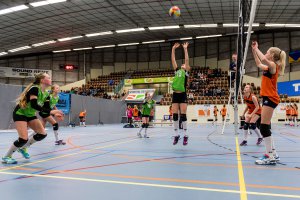
Volleyball is a popular sport in the municipality of Beesel, which includes Reuver. This is also true for children. Of the 312 members of Revoc/VCB, 130 are under eighteen. "Children can start playing from the age of six.th Become a member.” The club is deeply rooted in the community. “We’ll be celebrating our 70th anniversary next year,” says Louis Hillekens. “I’ve been playing volleyball for over forty years. Volleyball is so much fun because it’s a team effort. That brings so much to children. Besides fun and exercise, it’s also about socializing, learning to interact with other children, trainers, and coaches, learning to cope with winning and losing, and the associated emotions. But the feeling of belonging is also very important.”
Finger on the pulse
Even in the municipality of Beesel, there are families who have to survive on a minimum income and therefore don't have the money to pay their volleyball club's dues and clothing. "Several children participate in sports with us through the Youth Fund," says Louis. "The Leergeld foundation submits applications to the Youth Fund if there's no money at home for sports or music lessons. Children are allowed to participate with us three times to see if it's right for them. As membership administrator, I can also keep a close eye on things. If the direct debit isn't working properly, I contact the family myself. I also let the parents know when the reimbursement period through the Youth Fund expires, so they can take action."
Children should be able to be carefree children
Participation can make a huge difference in a child's life. For some, the club even becomes a kind of family, where they can share their stories if things aren't going well at home or school. When we let a member help with the little ones' training, we also see their self-confidence grow. Without the Youth Fund's contribution, that wouldn't have been possible. It's crucial that children have access to sports or music. Children should be able to be carefree children.
Dutch Volleyball Association (Nevobo)
The Dutch Volleyball Association (NEVOBO) supports volleyball clubs at the administrative level, provides technical support (e.g., coaches and referees), and is actively engaged in professional development. As Sports Development Manager, Peter van Tarel is responsible for supporting the clubs, among other things.
"It's a difficult time for volleyball," says Peter van Tarel. "We're a team sport and an indoor sport. And in times of coronavirus, that's difficult. During the first wave, there was a decline in youth membership. That shows how important that club structure is. The social aspect is under a lot of pressure right now, but we're doing everything we can to adjust that. I think it will pick up again. People need that social aspect. Volleyball is a true popular sport and is in the top ten of the fastest-growing team sports."
In sports, children develop in a natural way.
Better at moving
The sense of belonging that the club fosters is important for children, especially those from vulnerable families. "At many of our clubs, these children can become members with the help of the Youth Fund," says Peter. "The clubs are well-informed about the fund's existence and how to apply. Sports are important for children's personal development, life skills, and physical development. There's a growing focus on broad motor skills. While you might not be climbing or doing somersaults, incorporating these skills into your training can help children improve their general movement and benefit from them for life. More and more sports clubs are doing this."
Life skills
Peter van Tarel believes not only the physical aspects of sports are important but also that children get the opportunity to develop life skills. "Collaboration, goal setting, giving and receiving feedback, leadership. That happens very naturally in sports. This is especially valuable for children growing up in challenging situations. Internationally, this development of life skills through sports is already commonplace. In the Netherlands, it can be done even more. It's something that's high on our list as an association."
Photo credit: fotohoogendoorn.nl.
Facts & numbers
children and young people became members of a club through us in 2024.
in 2024, children and young people became members of a sports club through us.
in 2024, children and young people became members of a cultural club through us.
issued sports and cultural equipment in 2024.
